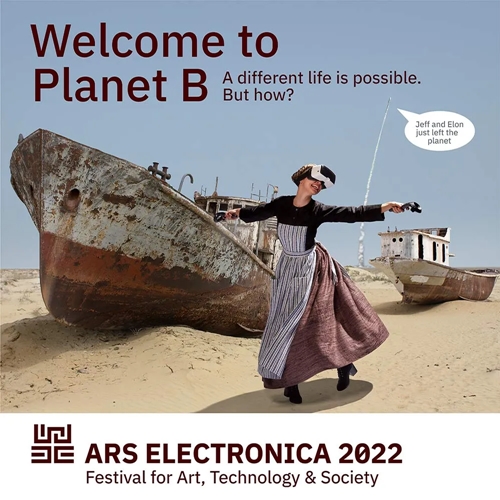
AT
Lab’s “Ballet Metanique” Participates in the Ars Electronica Festival 2022 at
the Invitation
The Art & Technology Lab (AT Lab)
under the Convergence Art Center’s immersive metaverse production, “Ballet
Metanique,” was officially invited to the Ars Electronica Festival 2022 from 7
to 11 September in Linz, Austria. The K-Arts is the only university in Korea to
receive the invitation. Since 1979, the Ars Electronica Festival celebrates its
43rd anniversary this year. It is known to be the Cannes in the media art field
for showcasing the performances and exhibitions integrating cutting-edge
technologies and arts. With its long history and tradition, it is the world's
largest media art festival with more than 20 million joining online and more
than 11 million coming to visit each year.
“Ballet Metanique” by director Park
Ark, an alumnus of the School of Film, TV & Multimedia, is a converging
work of art that integrates classical ballet with high-tech immersive
technology. Combining the results of R&D – such as the network performance
system created by the director and haptic technology vibrating to the sound –
with the work, the product presents the audience with a fresh new experience
exceeding the boundary between arts and science.
Aside from that, the K-Arts, as the
managing institution, participates in the Cultural Content R&D Professional
Manpower Training Project which aims to nurture experts in advanced art and
technology by supporting the development of converging technology. Organized by
the Culture, Sports, and Tourism Technology Center affiliated with the Korea
Creative Content Agency, Pohang University of Science and Technology research
team, Jiffycrew and Birdhand corporates in the high-tech content industry have
taken part as joint research development institutions for two years. Operating
a content-oriented R&D curriculum and an academia-industrial project, the
project is ongoing with about thirty student participants.